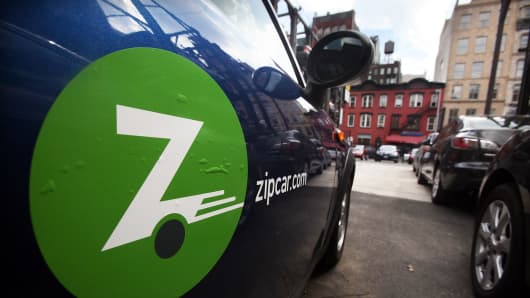Zipcar might seem like a fairy tale entrepreneur story.
Two moms who met when their kids attended the same kindergarten come up with a zany idea for a car-sharing service in Cambridge Mass. Robin Chase and her partner wrote up a business plan and started with $67.
The business exploded over the next decade. Today, Zipcar was purchased by Avis Budget Group for nearly $500 million.
But the ending isn't quite what you'd expect.
While Avis Budget is paying a premium of 50 percent for the company, Zipcar's founders are not among the largest shareholders. In a recent interview, Chase said she still had "some shares" in the company. (Read more: Cities That Are Minting Millionaires)
A spokesman for Chase declined to comment on her holdings. She stepped down as CEO in 2003 and has launched another car-rental service in France.
People close to the company said that shortly after Zipcar was launched, Chase controlled more than half of the shares. An early round of capital raising brought her share down to around 20 percent. But the real share-killer was a round of financing the company did in 2002, when the capital markets were reeling after the dot-com bust and 9/11.
That investment round brought her shares down to around under 10 percent. By the time the company went public in 2001, Chase owned around 3 percent of the company, these people said. It's unclear how many shares she sold after the offering, or how many shares were owned by other family members.
Paul Davis, a former Zipcar boardmember and early investor, said that while Chase may not have hit the jackpot with today's deal, she's done well over the years.
"Longtime friends ask, 'Did she make $100 million off this deal?' She didn't. But she's done fine."
(Read more; Top Towns for Sales of $10 Million Homes)
Another beneficiary is Robert Kagle, a board member of Zipcar and venture capitalist who invested in the company. His more than five million shares will be worth nearly $20 million more after the deal, according to company share information.
Did Chase cash out too early or cheaply?
Maybe, or maybe not. The company's shares were trading at more than $29 a share shortly after its IPO in April. The deal price is still less than half that value.



